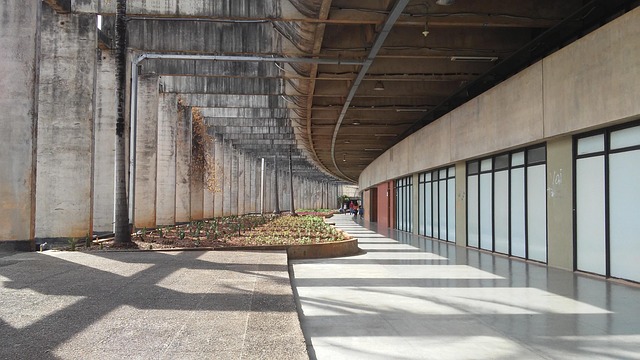Student housing in college towns offers affordable amenities and social opportunities but faces challenges with privacy, noise, quality control, and financial constraints. Balancing these pros and cons is crucial for a positive college experience.
Student rentals in college towns offer a unique blend of benefits and drawbacks. On one hand, they provide cost-effective accommodation options tailored to students’ budgets. These living arrangements often foster a strong sense of community, enhancing social experiences and networking opportunities. However, challenges like noise levels, maintenance issues, and privacy concerns may arise. Understanding these student housing pros and cons is crucial for both prospective tenants and property managers looking to cater to this demographic.
- Cost-Effective Option for Students
- Community Building and Social Benefits
- Potential Challenges and Negatives
Cost-Effective Option for Students

Student rentals in college towns offer a cost-effective option for students, one that often proves more affordable than traditional on-campus or off-campus housing choices. These properties are tailored to meet the specific needs and budgets of students, with many offering shared spaces, laundry facilities, and other amenities. By opting for student rentals, students can save significantly on rent, utilities, and even meal plans. This financial advantage is especially appealing for those pursuing higher education on tight budgets or working part-time jobs alongside their studies.
Moreover, the proximity of student rentals to campuses fosters a sense of community and convenience. Students can walk or bike to classes, reducing transportation costs and time spent commuting. This accessibility also encourages social interaction and participation in campus events, creating a well-rounded college experience. However, it’s essential to weigh these pros against potential cons, such as limited privacy and noise levels from shared spaces, when considering student rentals as an option.
Community Building and Social Benefits

Student rentals in college towns offer unique opportunities for community building and social engagement, which can significantly enhance the overall college experience. Living in close proximity to peers from diverse backgrounds fosters a sense of belonging and camaraderie. Shared spaces encourage interactions, leading to friendships, study groups, and even cultural exchanges. This sense of community can be particularly beneficial for first-year students who are adjusting to campus life and looking for a support system.
Moreover, student housing often becomes the epicenter of social activities, with regular events, parties, or club meetings taking place within the community. These interactions not only contribute to personal growth but also help in building a robust network that can be invaluable for future career opportunities. The vibrant atmosphere encourages collaboration and creativity, creating a dynamic environment that prepares students for the diverse and interconnected world they will enter upon graduation. However, managing noise levels and maintaining peace among residents remains essential to ensure everyone’s well-being.
Potential Challenges and Negatives

While student rentals in college towns offer numerous advantages, there are also potential challenges and negatives to consider. One significant drawback is the variability in quality and safety standards across rental properties catering specifically to students. Not all landlords or property management companies may prioritize student needs, leading to subpar living conditions or even health and safety hazards. Students might find themselves in overcrowded spaces with inadequate maintenance, which can negatively impact their overall college experience.
Another challenge pertains to the financial burden. While student rentals can provide more affordable housing options compared to other alternatives, they often come with hidden costs. Extra fees for utilities, internet, or even basic maintenance can quickly add up, leaving students with unexpected expenses. Moreover, some lease agreements may include strict rules and penalties, which can be a hassle for students who might need flexibility due to unpredictable schedules or unexpected situations.
